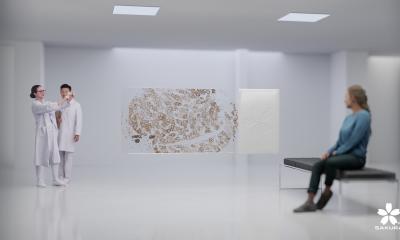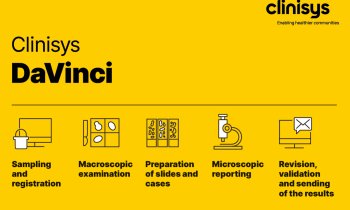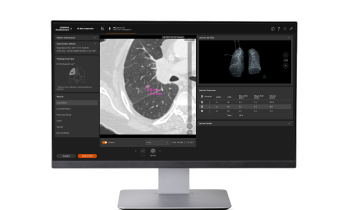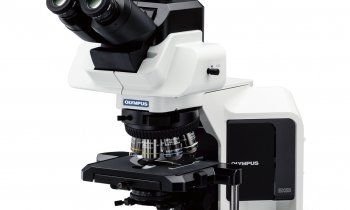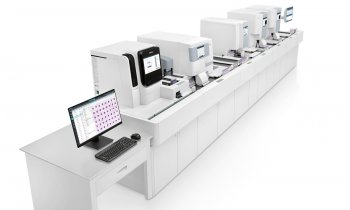LEAN Management
‘Why should something that works for the automotive industry not also facilitate leaner processes in pathology?’ Walter Depner decided to look at The Institute of Pathology in Bern, Switzerland, where the concept was tested for three years.
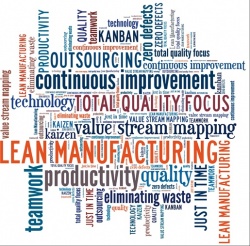
Many people are familiar with the terms ‘Lean Production’ and ‘Lean Management’ used in the automobile industry. Their origins lie in Toyota, Japan. Engineers, scientists and economists had worked for years on the concept, which was then internationally adopted not only by the automobile industry – but also, for example, by the medical world and most specifically pathology. In an interview with Walter Depner, Professor Alessandro Lugli MD, Senior Consultant and Head of Clinical Pathology at the Institute of Pathology of the University of Bern, Switzerland, explained why a Lean concept can be beneficial in his field and outlined initial experience gained since the method was introduced to his institute.
‘Pathology is the provision of a service in the broadest sense, where very different types of materials, i.e. samples, are received from a whole range of ‘customers’,’ Professor Lugli said. ‘These samples are then processed (examined). The result is a product in the form of a test result. This product is then used by other clincal departments or general practitioners, then use this product to base further treatment on it.
Pathology is not noted as an automation trailblazer; isn’t the Lean concept about automation and effectiveness?
‘Yes, but it’s not necessarily about automation. A Lean concept applied effectively can facilitate the fast and high quality transmission of highly complex results to the clinician.
‘In other words, it allows us to make the individual steps of this process as lean as possible.’
There are also terms such as ‘added value’, ‘business processes’, ‘customer orientation’, and so on – all business-related. Can you simply transfer that terminology to pathology?
‘Yes, absolutely; we can, for instance, adapt or redesign our facilities, integrate our employees into the processes in an improved manner and utilise them in such a way that we are able to cut down on overtime.’
Is the use of Lean management in pathology widespread therefore now?
‘As far as I’m aware other pathologists, internationally, have also introduced Lean concepts. We may not be the very first pathology institute working in accordance with a complete Lean system, but we are definitely among the first who looked into this.
Pathology is integrated within overall medical processes. Does this necessitate complete networking through the hospital’s electronic data processing system?
‘Not necessarily – pathology can always work completely independently, although integration into the electronic data processing network is obviously a big advantage. The clinicians notice very quickly when they receive a result within two days for which they used to wait 10 days, to give an example. This increased speed leads to astonished enquiries and questions as to the reason.’
Speed is one of the quality characteristics of our institute. It is an essential point, particularly for the external senders of samples.’
What about your own hospital – is it less efficient?
‘Absolutely not, it’s to the contrary. If you only think about the economy of space and distances there is enormous potential for savings and increased efficiency.’
‘In 2010, the Director of the Institute, Professor Aurel Perren, initiated an assessment of the status quo and all the preparation; we could then begin the implementation in spring 2011. In 2014 we had an external Lean audit, with very good results. However, we continuously find areas that can be improved. Many employees now approach us of their own accord if they come across issues where they believe a process does not conform to Lean and should be included.’
What do colleagues who work outside the pathology department think of the system after its three-year period of testing?
‘All who visited us praised the organisation, processes and quality. We have incorporated efficiency controls and mechanisms to increase effectiveness, which allow us to continuously evaluate ourselves. At the same time we also have an elaborate reporting system.’
Were there staff savings?
‘The objective was not to cut down on the number of staff, or even to make staff redundant. However, what we have achieved, being a university institute, is that those colleagues who ended up with spare capacities because of diagnostic process improvements, can now be more frequently integrated in the research process.’
Hence the underlying objective of a Lean production was successfully implemented and achieved.
‘Yes, that’s absolutely correct. The project was completed, but Lean is a philosophy that continuously evolves and improves and therefore, as such, you never actually finish with it.
Profile:
Professor Alessandro Lugli MD, Deputy Senior Consultant and Head of Clinical Pathology at the Institute of Pathology, University of Berne, Switzerland, focuses on gastrointestinal pathology and post-mortal diagnostics, as well as biomarker research, tumour immunology and histopathological and molecular-pathological aspects of colorectal carcinoma.
He is also Secretary of the Swiss Association of Gastrointestinal Pathology (SAGIP), co-founder of the platform ‘next-generation tissue microarray’ (ngTMA) and member of several editorial boards and professional societies.
04.09.2014





